The Paradox of Identity
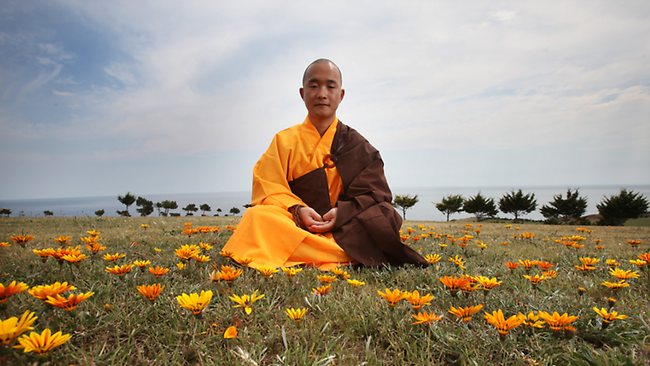
The scholarly article I explore in this post was written by Lauren Leve, a renowned ethnographer. If you would prefer, please read her article written here.
“The paradox presented by people who, on the one hand, understand that they have no selves and, on the other, participate in identity politics disrupts assumptions about identity that structure liberal law and, in many cases, academic anthropology.” – (Leve, 516)
Far away, in the Kathmandu valley, a Buddhist monk dismisses all of Leve’s questions about his personal experiences. Yet, this same Buddhist monk participated and fought for official recognition from the government. In Hinduism, Buddhists are not acknowledged in the caste system. They are separate from the hierarchy. Although officially, it is illegal to discriminate against others because of their caste, the social hierarchy remains deeply embedded in Nepali society.
I remember one of my classmates asking, “where do Buddhists lie in the caste system?” to the Volunteer Nepal organizer. His response echoed the same response you would have gotten if you had asked 300, 400, or 1000 years ago. They aren’t even included in the caste system, along with many others. During my time in Nepal, visible discrimination was still evident towards the people at the bottom of the caste system. However, not all Brahmins (highest caste) are like this, and I also saw many instances of acceptance despite where one might lie in the social hierarchy.
After a peace agreement was reached after a decade long civil war between the Communist Party of Nepal (CPN-M or Maoists) and the Nepalese government, previously marginalized groups under the old government began to demand political recognition. Leve suggests that two assumptions can be made about the new wave of performance-based identities:
- That all people naturally have identities.
- That recognizing, supporting, and protecting these is a defining feature of the democratic state.
Now, let’s get into the juicy details.
In Nepal, as Leve found, and indeed elsewhere in the world, a multi-cultural world is thought to be the definition of democracy. An identity group, in this situation, is a group in society based on ethnicity, religion, or culture. On a micro-level, we could have “Irish dancers in California”, or if we zoom out – “American,” “Japanese,” or as big as “Asian” or “European.” I suspect that the “West vs. East” gaze developed from zooming out even farther. The funny thing is, “Western vs. Eastern” is only a couple steps away from cosmopolitanism, or seeing humans belonging to one group. The name of the one group everyone can join is called earth.
Stop! Before we move on, I think it’s fair to warn you what your about to read. These are some complex topics. I’ll do my best to translate the stuff into English.
Get your critical reading glasses on, because we’re about to dive neck deep into some theory.
Internationality and Nationalism
There is one concept we must understand before we move on: Internationality.
Ree, who developed the concept, writes that “internationality is the result of dividing space to generate multiple groups so we can always know who owns what” (qtd. in Leve, 519). In order to understand this better, picture America and it’s 50 states. Who owns the area that we have designate as Oregon? Oregonians, do, of course. Leve argues that we can apply the idea of “internationality” to culture as well. Who owns culture? If you talk about “southern culture” in America, who are we talking about? Depending on who you ask, they might answer Louisiana, Alabama, Georgia, Texas, Mississippi, and/or Florida. Although similar, someone who lives in northwestern Texas will grow up in a vastly different environment than say southern Florida. Yet, they can both be considered “southern.”
This thought process will help us understand Leve’s identity machine later on. What is the answer to the question, “where is Oregon located?” How many of you started by answering that it is “north of California” or “south of Washington?” Each state is its own unique place. We think of states, or nation-states for that matter, as “individuals.” As objects. Ree has two problems with this:
- ) the way that internationality can be used to serve political and economic interests. For example, dividing people into groups makes it easy to create a competition. Have you ever been in a group when two people start arguing? You could literally walk away and they might not even notice you’re gone. Now think about this concept in terms of politics and economics.
- ) the fact that nationlism works to advance those interests.
 Dividing people into groups on the basis of local traditions and values, or “cultural identity”; wouldn’t that just reaffirm the power of whoever did the dividing? In this case, the ruling class. The people with enough power to influence politics and economics. This isn’t something particularly new. In fact, this has been going on for the last 300 years. Only recently, with the maturation of the internet have the secrets of the ruling elite come out to the mainstream. Two words: Paradise Papers. No doubt, how this leak relates to what I talk about in this article will surely come up next week.
Dividing people into groups on the basis of local traditions and values, or “cultural identity”; wouldn’t that just reaffirm the power of whoever did the dividing? In this case, the ruling class. The people with enough power to influence politics and economics. This isn’t something particularly new. In fact, this has been going on for the last 300 years. Only recently, with the maturation of the internet have the secrets of the ruling elite come out to the mainstream. Two words: Paradise Papers. No doubt, how this leak relates to what I talk about in this article will surely come up next week.
Back to Ree and internationality. The problem with internationality, as Ree points out, is its inherent deception. “Internationality conspires to make us give our consent to state power by disguising it as an expression of our own feelings” (qtd. in Leve 518).
When you belong to a specific group, what does that make other groups? The others. A game of Us versus Them. Thus, identity politics make us compete against each other for the promises of official recognition and support from a higher power. Leve says it must be safe to assume, then, that the identity competition serves to reinforce the authority of the ruling class.
What is nationalism then, and how does it give power to the interests of the ruling class?
How is it that when the Seahawks win, I feel like I’ve won too? Despite that I didn’t play in the game, or even watch it for that matter. What’s the first thing someone says when their favorite team plays? “We won!” Case in point. Due to the ambiguity of the word “identity,” Leve argues that it is rather easy to attribute an identity to a group, which in turn causes people to think that both are the same. It is EASY to personify groups (Leve uses the example of “what women want”). Therefore, Leve notes, we can say that groups have wills, and that they also have histories like individuals do. All of this explains the success of nationalism and patriotism.
Leve notes that transnational identities are not as different from nationalism as they might seem. Transnational identities have started to pop up in scholarship recently, the most in-depth examples being Sara Shneiderman’s Rituals of Ethnicity and Kieu-Linh Valverde’s Transnationalizing Viet Nam. A little note on transnational identities… These are identities which develop from interaction across nation boundaries between two or more communities. Leve argues that transnational identities, which seem to pose a challenge to nation-states, are not so different from nationalism because they mobilize popular sentiment in support of political order (522).
Leve continues by summarizing another scholar’s thoughts on identity politics, which states:
“The main problem posed by a primary politics of identity is that it sets social groups against one another and thereby helps to protect neoliberal capitalism and its partner states from potentially threatening popular alliances” (522).
The idea of possession
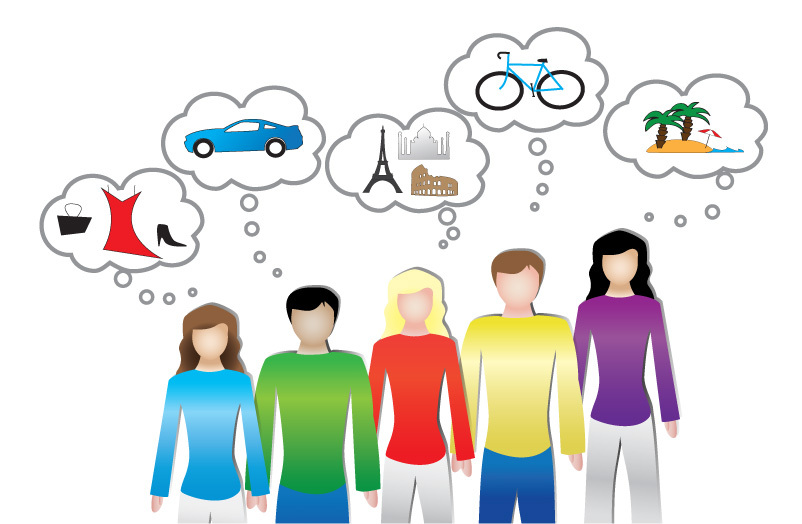
Possessive Individualism is a branch of thought that has a lot to do with market capitalism. Don’t be intimidated. If you’d like to read up on this political theory, feel free to check out this blog which goes further into detail. It’s a political theory that states, according to Macpherson in Leve’s essay:
A person owns their “self,” and thinks about their “self” the same as if they owned an object.
Personal identity can be marketed to others just as your favorite brands can. Nowadays, it is treated as a commodity. What’s a common piece of advice for a job interview? “Sell yourself.” In possessive individualism, the individual is the owner of their identity. Due to the nature of ownership and copyright,
“It is in this way that identities come to appear as forms of individual wealth.” (Leve, 520)
Therefore, culture and furthermore history, can be thought of as a private wealth. Japanese culture is owned by the Japanese, and Vietnamese culture is owned by the Vietnamese. In affect, “liberal institutions are compelled to defend ownership rights,” because ownership is often equated with freedom (Leve, 521). This provides the foundation for how popular the concept of “identity” has become in democratic nations all over the world. Thus, Leve argues, possessive individualism acts very much like nationalism. Both are tied to Leve’s concept called ” the identity machine.”
Beyond the nation-state
Incoming! I’m about to drop a new term on you. If you’ve made it this far, bear with me. We’re getting closer to the punch line of this article.
Before we go on, here’s a quick break down of what we’ve covered so far:
- We talked about how both individual and collective identities can be “owned,” and that division based on collective identity puts us in a competition against other identity groups.
- This competition is facilitated by the ruling elite.
- We play the game (because of the illusion of collective identity) without realizing that its purpose is to sustain the ruling elite’s power.
Neoliberalism; a hot topic in American society for sure. But let’s be clear what it means before we move on.
Neoliberalism is basically the idea that we want to minimize the government’s involvement in the market. The term was developed by the political philosopher Fredrich van Hayek and others after WWII. Neoliberalism states that governmental attempts to regulate the market work against individual liberty and — like we mentioned before — property rights. Remembering all the wars in the last century where Americans fought against communism, totalitarianism, and dictatorship, it makes sense why this is an important issue today.
It is for this reason, after the idea became popular towards the mid-80s, that many services are privatized. Privatization of state services such as security operations, hospital administration, prison management, and public utilities are protected from the fear of entering totalitarianism. On the other side of the coin, when social services are ran like a business — only concerned with profit — other problems develop. For example, the facts about privatized prison industries influencing laws so they can “stay in business” — such as through high mandatory minimum sentences for drug convictions — reflect some of the dangers of neoliberalism.
Capitalism, having shifted from industrial production to service-based economy can be observed through a change in how identity is formed (Leve, 522). Consumption is becoming the dominant means for how individuals understand their identity. How many of you define your identity based on the music you listen to, the clothes you buy and wear, or the movies you watch? What do these all have in common? They are all things you consume. A sign of a massive cultural shift where everything about reality is made sense through “buying” and “selling.”
This is exactly what Leve has observed about identity politics in Nepal. During my time there, I saw that Nepal heavily relies on tourism and service-based industries. The trekking industry there is huge. Yet, consumption is a relatively new mode of identity formation in Nepal. Which explains why Kathmandu feels so chaotic. The identity machine, as Leve notes, helps us understand the rapid shift in Nepal’s political approaches.
The Illusion of the Self
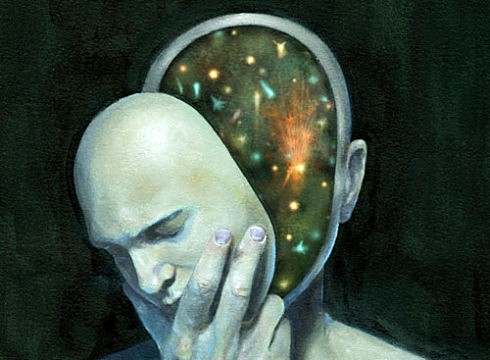
I hope things are starting to make sense, in regards to how all of these ideas are connected to Leve’s concept of an “identity machine.” Briefly, before she concludes, Leve encourages us to remember that identity is fluid. When we think of identity as an object — as something to be bought or sold — we forget one thing: Identity is ephemeral. It is always changing. Identity formation is a process being driven by human activity, or “doing” (qtd. in Leve 523). Human activity (“doing”) always involves more than one person in addition to an individual.
Why we do stuff — is inherently social. I may think I’m typing this blog post because I want to improve my writing, but the fact is my professor assigned us this task. Additionally, I write because I want to share my knowledge with others. I also reference other scholars’ ideas in my post. My computer was built, packaged, and shipped to the store by other people where I bought it. Leve argues that despite the idea of “doing” being almost entirely social, identity is still seen as an object. A = A, and B=B.
In this way, we are all trapped in the illusion that the self — we see the self as a static object. Even if we know that self-identity is actually the result of an ephemeral, liquid state of change, we cannot escape the limits of human perception. Thus, we get stuck seeing identity as an standalone object. It is the sum of all its properties, despite the enormous amount of evidence that it is not.
No one can claim ownership of an identity IF identity is seen as a continuous, transforming process connecting everyone and everything.
Which brings us back full-circle to the story about the Buddhist monk in the beginning of this post. To deconstruct the self, no, to forget the concept entirely, could actually be a form of resistance to consumerism.
As Leve notes regarding Buddhism,
“To believe that things are what they seem and expect them to remain so is to necessarily condemn onself to suffering (dukkha) brought about by the inevitablility of change, emptiness, and loss” (524).
The Buddha taught that everything in our reality is inter-connected. If you know anything about Buddhism, you understand one of the main teachings (and perhaps ultimate teaching) is that experiencing self as an individual object is the result of being unable to see past the illusion. Leve contrasts these teachings and ideals with her perspective on what’s going on in Nepal. Dissipation of the “self” inherently opposes the naturalization of the concepts we talked about earlier: possessive individualism and nationalism.
Despite the Buddha’s call to action, which is necessary to move towards enlightenment, Buddhists are still only human. Political imperatives have the power to make suffering unbearable to the individual, as the fear of losing one’s religion, culture, literature, and history takes hold. Thus, resistance eventually morphs into the thing it was resisting. This process of transformation, is the identity machine.
“The identity machine,” Leve explains, “is the point where the push from below begins to take on the shape and logic of the administrative apparatus to which it appeals” (525).
In other words, the identity machine exploits human weakness (fear of memory erasure) to secretly, invisibly, perpetuate the illusory nature of the individual self and keep us blind to the truths about reality.
All that’s left…

So you’ve made it to the end. Feeling like your world was shaken up? Me too. So, what’s next? Where do we go from here with this knowledge? This certainly screws up all the social sciences, which is why I needed to write such a long article.
Originally, I came to the conclusion that we just stop thinking about identity and POOF! America begins to embrace Buddhism and there’s no more corruption. But this, of course, is much more difficult than it seems. Leve takes this information in a different direction. She doesn’t advocate that we reject identity claims or question “authenticity.” Rather, we should examine where the ontology of identity, or identity constructions, are being appealed to. And more importantly, where they are not.
Leve concludes, that although most anthropologists understand that cultural boundaries do not always depend on geographical or political space, we continue to “localize” and assume identities for groups of people. She ends with a call to action; either investigate the operations of the identity machine or become part of it.
“If anthropologists wish to affirm human struggles against oppression, exploitation, and, where appropriate, invisibility in all their forms, we must refuse to allow our critical imaginations to be taken over by the identity machine.” – (Leve, 526)
The information in this article was drawn from Lauren Leve’s article. If you would prefer, you can read it here.
Leve, Lauren. “‘Identity.’” Current Anthropology, vol. 52, no. 4, 2011, pp. 513–535. JSTOR, JSTOR, www.jstor.org/stable/10.1086/660999.












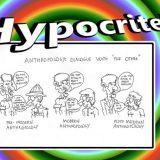

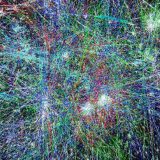

I read this paragraph fully regarding the difference of
most up-to-date and preceding technologies, it’s amazing article.
Thanks for the kind words! I no longer make blogposts on this website. However, you can follow me on my new website called http://www.teedubson.com!
Appreciate the comment my friend 🙂 Check out my new blog called http://www.teedubson.com!
Hi It’s very effortless to find out any matter on net as compared to textbooks, as I found this paragraph at this website. gracias
I appreciate the kind words! I no longer post on this website, but feel free to check out my new blog at http://www.teedubson.com! 🙂
I must show my appreciation to you for rescuing me from such a problem. After researching throughout the world-wide-web and coming across things that were not helpful, I thought my life was over. Being alive without the answers to the difficulties you’ve solved as a result of your main post is a serious case, and the kind which might have in a negative way affected my career if I had not noticed your web blog. The capability and kindness in touching all the stuff was valuable. I don’t know what I would have done if I hadn’t come upon such a thing like this. I can at this time relish my future. Thanks a lot very much for this expert and sensible guide. I will not hesitate to refer your blog to any individual who needs to have assistance on this situation.
Visit us for different sharing and video portal.
I own a friend who’s an expert with this matter so when I discussed your post The Paradox of Identity – Tristan’s A-Pop Blog he was very interested. data hk https://www.hongkongpool.co
tubidy mobile music and video
Hi! I’m a Russian Internet Marketer living in Denver, I found your article to be soooo Usefull!
essay writing definition i need help with my 7th grade math homework finance homework help
Hallo No matter if some one searches for his vital thing, so he/she needs to be available that in detail, so that thing is maintained over here. many thanks Sir.
Pencuri Movie Dfm2u 2021 – Pencuri movie asia, dfm2u movie, Pencuri movie 2021 sangkar, Pencuri movie online, Dfm2u paskal live, Kepala Bergetar 2021, Tonton Filem Melayu, Tonton Melayu, Tonton dan Download Drama Melayu, Filem Terbaru, Filem Malaysia, Drama Malaysia
There as noticeably a bundle to learn about this. I assume you made certain nice points in features also.
https://agario.miami
Most cloud computing services fall into four broad categories: infrastructure as a service (IaaS), platform as a service (PaaS), serverless, and software as a service (SaaS), according to Beinsure Media Review Cloud Computing Trends.
Enhancing cloud platform capabilities through various technologies and tools is going to be the largest trend in 2023-2024. Cloud computing providers store and process data in a location that’s separate from end users. The benefits of cloud computing are changing the landscape of business.
Cloud computing technology gives users access to storage, files, software, and servers through their internet-connected devices: computers, smartphones, tablets, and wearables.
“There will also be multiple new applications for cloud technology that weren’t possible before. Here are a few reasons and trends that will see cloud computing reach new heights in the coming year”, says Finance Media Holding.
In a world where customers demand personalized marketing and instant and impeccable service, it’s fast becoming not just the best way to drive successful and innovative businesses, but the only way.
RR88 – Nhà cái trực tuyến siêu uy tín, giải trí chất lượng khi cung cấp: game bài, game nổ hũ, bắn cá, thể thao. Khuyến mãi tân thủ nạp đầu nhận 8,888K
Website: https://rr88.video/
강남가라오케는 가격도 적당하고 노래도 잘 부를 수 있어 재방문하고 싶어요. 강남가라오케
Your article has proven useful to me.It’s very informative and you are obviously very knowledgeable.해외문자사이트
I always look at your blog and sincerely hope it becomes a good site. I will leave a comment.해외문자사이트
This is such a great resource that you are providing and you give it away for very good idea.피망머니상
The content is high quality, and absolutely amazing,topics you are truly amazing Keep it up!!피망시세
The level of creativity and thoughtfulness put into it is truly amazing!피망포커|피망시세|피망머니상
Thank you for always having a great blog. Have a nice day today too몸캠피싱
This content is absolutely amazing!강남가라오케
Thanks for sharing this information,content is absolutely amazing.몸캠피싱
This is a great content its providing and you give it way for very good idea.강남셔츠룸
Thanks for sharing this content its absolutely amazing.they genuinely stands out.강남 노래방
I just touchy to set aside you realize that I just take a look at out your web page and i find it absolutely captivating and informative. MoonX
강남가라오케 Gangnam Karaoke is a high-class entertainment establishment located in Gangnam-gu, Seoul, and is a proper noun that provides customized service and a classy atmosphere that meets the tastes and needs of customers. night7982.com
nikmati keseruan bermian di situs cantonatoto daftar banyak hadiahberlimpah hinggta menuju kesuksesan
강남가라오케 | 강남노래방 | 강남퍼블릭 | 강남셔츠룸 [gangnamkaraoke] https://shirtroomgangnam.company.site
강남가라오케 공식 홈페이지입니다. Gangnam karaoke 강남퍼블릭 종류 모두 이용 가능하며, 강남노래방, 강남셔츠룸까지 확실하게 준비 된 곳으로 방문 언제든 24시간 karaoke in korea
This is the official homepage of Gangnam Karaoke. Gangnam Karaoke is available in all Gangnam Public types, and is a place that is well-prepared for Gangnam Karaoke and Gangnam Shirt Room. You can visit anytime, 24 hours a day, karaoke in Korea.
hello. Thank you for always having a great blog. Have a nice day today.
강남 엘리트
Terima kasih atas informasinya yang sangat bermanfaat. Kebetulan saya juga menemukan informasi menarik di slot demo gacor yang mungkin bisa melengkapi pembahasan ini. Semoga bermanfaat!
This is such a helpful post—thank you for sharing! I always look forward to your content. 강남 도파민
Some types of happiness may even conflict with one another.강남 달토
Some types of happiness may even conflict with one another.리토
I have read your blog it is very helpful for me. I want to say thanks to you. I have bookmark your site for future updates. Classroom 15x
I can tell you have a deep understanding of the topic, and it makes me trust your advice completely.강남 가라오케
Every year, thousands of customers around the world choose MaroCar for a cheap car hire in Morocco. The platform operates in the main cities of the kingdom (Casablanca, Marrakech, Tangiers, Rabat …) and delivers its cars to the address of your choice or directly to the main airports in the country. luxury villas italy le collectionist
I like how you mix knowledge with inspiration.
Your words make this feel simple without losing depth.
Thank you for creating such an informative platform that demystifies complex subjects and empowers readers to take action confidently.강남호빠
Hello, you old to engrave magnificent, except the last few posts have been kinda boring… I skip your super writings. Historical several posts are merely a bit out of track! extend on! rajabandot
This content added a new perspective I hadn’t considered before. Thank you! rajabandot
wonderful post; continue doing this fascinating stuff. Thank you for taking the time to talk about this; it’s great to know that this website is also covering this subject!
Superbly written article, if only all bloggers offered the same content as you, the internet would be a far better place..
Hi there, I’m so happy to have found your blog. I actually found you by accident while doing Google for something else. Nevertheless, now since I’m here, I just wanted to say thanks for a fantastic article and an all-around fascinating website. Do not stop the fantastic job, please.
I’m always searching the internet for free goods of all types. Additionally, some businesses provide complimentary samples. However, I don’t read blogs too much now that I’ve visited yours. Regards.
Very useful post. This is my first time i visit here. I found so many interesting stuff in your blog especially its discussion. Really its great article. Keep it up.
This is very educational content and written well for a change. It’s nice to see that some people still understand how to write a quality post.!
Hi, I find reading this article a joy. It is extremely helpful and interesting and very much looking forward to reading more of your work..
There is just too much fascinating content on your blog. I suppose I’m not the only one enjoying myself immensely here! Continue your fantastic job.
This is highly informatics, crisp and clear. I think that everything has been described in systematic manner so that reader could get maximum information and learn many things.
You provided us with such an amazing read, illuminating every topic so we could learn more. I appreciate you providing us with this knowledge, which has helped me understand a few things.
Excellent .. Amazing .. I’ll bookmark your blog and take the feeds also…I’m happy to find so many useful info here in the post, we need work out more techniques in this regard, thanks for sharing.
Great things you’ve always shared with us. Just keep writing this kind of posts.The time which was wasted in traveling for tuition now it can be used for studies.Thanks
Really a great addition. I have read this marvelous post. Thanks for sharing information about it. I really like that. Thanks so lot for your convene.
I admit, I have not been on this web page in a long time… however it was another joy to see It is such an important topic and ignored by so many, even professionals. I thank you to help making people more aware of possible issues.
This is my first time visit here. From the tons of comments on your articles,I guess I am not only one having all the enjoyment right here!
Thank you for writing; I understand precisely what you mean. Furthermore, I’m overjoyed to have found this page on Google. bandar slot
We appreciate your willingness to share information with us. I know you are genuinely concerned about us, therefore we will always be grateful for everything you have done here.
Thanks for taking the time to discuss that, I feel strongly about this and so really like getting to know more on this kind of field. Do you mind updating your blog post with additional insight? It should be really useful for all of us.
What a captivating post, you’ve highlighted some great points. I believe this is one of the best websites I’ve come across. I plan to visit it again and again.
Yes, I completely agree with this article, and I just wanted to add that it’s a really lovely and educational piece.I’ll make an effort to read your blog more frequently. You raised a valid argument, but I have to ask—what about the other viewpoint?!!!!!!Regards
This is my first time visit here. From the tons of comments on your articles,I guess I am not only one having all the enjoyment right here!
I just found this blog and have high hopes for it to continue. Keep up the great work, its hard to find good ones. I have added to my favorites. Thank You.
I appreciate everything you have added to my knowledge base.Admiring the time and effort you put into your blog and detailed information you offer.Thanks.
Just admiring your work and wondering how you managed this blog so well. It’s so remarkable that I can’t afford to not go through this valuable information whenever I surf the internet!
Yes, I completely agree with this article, and I just wanted to add that it’s a really lovely and educational piece.I’ll make an effort to read your blog more frequently. You raised a valid argument, but I have to ask—what about the other viewpoint?!!!!!!Regards
I value the article post. Keep writing.
Really a great addition. I have read this marvelous post. Thanks for sharing information about it. I really like that. Thanks so lot for your convene.
Good website, where did you find the details for this post? Still, I’m glad I found it, and I’ll be returning soon to see what other postings you have.
i read a lot of stuff and i found that the way of writing to clearifing that exactly want to say was very good so i am impressed and ilike to come again in future..
hello!! Very interesting discussion glad that I came across such informative post. Keep up the good work friend. Glad to be part of your net community.
This is my first time visit here. From the tons of comments on your articles,I guess I am not only one having all the enjoyment right here!
Yes i am totally agreed with this article and i just want say that this article is very nice and very informative article.I will make sure to be reading your blog more. You made a good point but I can’t help but wonder, what about the other side? !!!!!!Thanks
Very useful post. This is my first time i visit here. I found so many interesting stuff in your blog especially its discussion. Really its great article. Keep it up.
Fantastic article post.Thanks Again. Want more.
I read a ton of stuff and I tracked down that the approach to writing to clearifing that precisely need to say was generally excellent so I’m dazzled and ilike to return again in future..
I have never been here before. I thoroughly enjoyed reading your site, especially the conversation sections. It appears from the numerous comments on your posts that I am not the only one enjoying myself immensely here. Keep up the wonderful job.
I have read your essay a few times since, for the most part, your opinions align with mine. For every reader, there is excellent stuff.
Excellent .. Amazing .. I’ll bookmark your blog and take the feeds also…I’m happy to find so many useful info here in the post, we need work out more techniques in this regard, thanks for sharing.
Rajabandot slot sangat menarik untuk dimainkan! Grafisnya keren, banyak bonusnya, dan peluang menangnya besar. Cocok banget buat hiburan online yang seru setiap hari!
Great write-up, I am a big believer in commenting on blogs to inform the blog writers know that they’ve added something worthwhile to the world wide web!..
Hi, I find reading this article a joy. It is extremely helpful and interesting and very much looking forward to reading more of your work..
This is highly informatics, crisp and clear. I think that everything has been described in systematic manner so that reader could get maximum information and learn many things.
Fantastic website! I love how comfortable it is for my eyes. I would want to know how to receive notifications when there is new content. searching for further fresh information. I hope you have an amazing day!
Awesome and interesting article. Great things you’ve always shared with us. Thanks. Just continue composing this kind of post.
You know your projects stand out of the herd. There is something special about them. It seems to me all of them are really brilliant!
I’ve been searching for some decent stuff on the subject and haven’t had any luck up until this point, You just got a new biggest fan!..
Excellent .. Amazing .. I’ll bookmark your blog and take the feeds also…I’m happy to find so many useful info here in the post, we need work out more techniques in this regard, thanks for sharing.
When you use a genuine service, you will be able to provide instructions, share materials and choose the formatting style.
This is highly informatics, crisp and clear. I think that everything has been described in systematic manner so that reader could get maximum information and learn many things.
It was a very good post indeed. I thoroughly enjoyed reading it in my lunch time. Will surely come and visit this blog more often. Thanks for sharing.
I just found this blog and have high hopes for it to continue. Keep up the great work, its hard to find good ones. I have added to my favorites. Thank You.
This is highly informatics, crisp and clear. I think that everything has been described in systematic manner so that reader could get maximum information and learn many things.
I know your expertise on this. I must say we should have an online discussion on this. Writing only comments will close the discussion straight away! And will restrict the benefits from this information.
There as definately a great deal to learn about this issue. I really like all the points you ave made.
This is highly informatics, crisp and clear. I think that everything has been described in systematic manner so that reader could get maximum information and learn many things.
What a thoughtful and deeply reflective piece. Your exploration of the paradox of identity — how we can feel both anchored and fragmented — really resonates. I love how you acknowledge the tension between belonging and becoming. Thanks for being so open and honest.
Info yang bagus, akses rajabandot login jadi lebih mudah dipahami dengan penjelasan seperti ini.
You know your projects stand out of the herd. There is something special about them. It seems to me all of them are really brilliant! kenzobet
It is truly a well-researched content and excellent wording. I got so engaged in this material that I couldn’t wait reading. I am impressed with your work and skill. Thanks.
This is my first time visit here. From the tons of comments on your articles,I guess I am not only one having all the enjoyment right here!
Great things you’ve always shared with us. Just keep writing this kind of posts.The time which was wasted in traveling for tuition now it can be used for studies.Thanks
very interesting keep posting. bandar judi
Great things you’ve always shared with us. Just keep writing this kind of posts.The time which was wasted in traveling for tuition now it can be used for studies.Thanks
Thank you again for all the knowledge you distribute,Good post. I was very interested in the article, it’s quite inspiring I should admit. I like visiting you site since I always come across interesting articles like this one.Great Job, I greatly appreciate that.Do Keep sharing! Regards,
The clarity and depth of your writing are remarkable, making complex topics accessible and interesting, which keeps me captivated and eager for each new post.건대 노래방
Thank you again for all the knowledge you distribute,Good post. I was very interested in the article, it’s quite inspiring I should admit. I like visiting you site since I always come across interesting articles like this one.Great Job, I greatly appreciate that.Do Keep sharing! Regards,
I am incapable of reading articles online very often, but I’m happy I did today. It is very well written, and your points are well-expressed. I request you warmly, please, don’t ever stop writing. pahala4d login
Gives you the best website address I know there alone you’ll find how easy it is.
PAHALA4D Pengalaman Akses Digital yang Lebih Efisien dan User-Friendly
PAHALA4D ️ Solusi Aman dan Terpercaya untuk Pengalaman Taruhan Anda
I feel strongly about this and so really like getting to know more on this kind of field. Do you mind updating your blog post with additional insight? It should be really useful for all of us.
At Bakhtiari & Harrison, we focus on quality, aggressive advocacy, rigorous preparation and client focused results. We bring decades of experience and the resources to offer personalized service tailored to your needs. We understand the unique needs and concerns of each client and implement an effective and compelling strategy from the outset. Bakhtiari & Harrison offers top-tier expertise in securities arbitration and litigation.
This is highly informatics, crisp and clear. I think that everything has been described in systematic manner so that reader could get maximum information and learn many things.
I just found this blog and have high hopes for it to continue. Keep up the great work, its hard to find good ones. I have added to my favorites. Thank You.
Great things you’ve always shared with us. Just keep writing this kind of posts.The time which was wasted in traveling for tuition now it can be used for studies.Thanks
“Once you face your fear, nothing is ever as hard as you think.” —Olivia Newton-John성남 노래방
This type of message always inspiring and I prefer to read quality content, so happy to find good place to many here in the post, the writing is just great, thanks for the post.
Excellent .. Amazing .. I’ll bookmark your blog and take the feeds also…I’m happy to find so many useful info here in the post, we need work out more techniques in this regard, thanks for sharing.
Great things you’ve always shared with us. Just keep writing this kind of posts.The time which was wasted in traveling for tuition now it can be used for studies.Thanks
Great things you’ve always shared with us. Just keep writing this kind of posts.The time which was wasted in traveling for tuition now it can be used for studies.Thanks
you will be able to provide instructions, share materials and choose the formatting style.
I just found this blog and have high hopes for it to continue. Keep up the great work, its hard to find good ones. I have added to my favorites. Thank You.
I just found this blog and have high hopes for it to continue. Keep up the great work, its hard to find good ones. I have added to my favorites. Thank You.
This is one of the most useful articles I’ve read in a long time. Thank you for sharing such excellent content. bandar slot
Thank you again for all the knowledge you distribute,Good post. I was very interested in the article, it’s quite inspiring I should admit. I like visiting you site since I always come across interesting articles like this one.Great Job, I greatly appreciate that.Do Keep sharing! Regards,
Thank you again for all the knowledge you distribute,Good post. I was very interested in the article, it’s quite inspiring I should admit. I like visiting you site since I always come across interesting articles like this one.Great Job, I greatly appreciate that.Do Keep sharing! Regards,
“Don’t take yourself too seriously. Know when to laugh at yourself, and find a way to laugh at obstacles that inevitably present themselves.” —Halle Bailey길동 노래방
Whatever you like I’ve got a variety of beauty treatments or exotic companions for you and more than that, I could be there for you the form of one night stand.
Deviousness is a character that plays a vital role before you however, after a certain period of time, the true character of girls will emerge.
A intimate addiction uncontrollable that leads to having intimate relations on the internet or outside the home can cause a psychic injury. intimately is at the core of our identity.
There is no need to delay or contemplate the cost, simply contact us and we will help you locate the most suitable Rudrapur services for modeling under your budget.
We guarantee you that our call girls are committed to giving you an orgasm of a lifetime. Book an call girl through us and get to feel the heavenly pleasure of a woman’s body!
I always know I’m going to understand it when I see you’ve written it.
I never get that “wait, what?” feeling when I read your work. It’s seamless.
I appreciate that you never make things sound more mysterious than they are.
Great things you’ve always shared with us. Just keep writing this kind of posts.The time which was wasted in traveling for tuition now it can be used for studies.Thanks
“Once you face your fear, nothing is ever as hard as you think.” —Olivia Newton-John장안동 노래방
“Whether you think you can or you can’t, you’re right.” —Henry Ford길동 노래방
Excellent .. Amazing .. I’ll bookmark your blog and take the feeds also…I’m happy to find so many useful info here in the post, we need work out more techniques in this regard, thanks for sharing.
hello!! Very interesting discussion glad that I came across such informative post. Keep up the good work friend. Glad to be part of your net community.
. we will always appreciate all you have done here because I know you are very concerned with our
Verified vendor at castrocvv shop, delivering premium CVV with consistent validity. Services accessible via castrocvv login for castrocvv cc, castro cc, castro cc shop, cc castro, and castro.cc.
Prime Prozone CC – Login securely at Prozone.cc to access the exclusive Prime Prozone section of the Pro Zone CC shop for elite services.
“Life has no limitations, except the ones you make.” —Les Brown잠실노래방알바
“Love the life you live. Live the life you love.” —Bob Marley가락동노래방
“The best way out is through.” —Robert Frost구로노래방알바
“Life does not have to be perfect to be wonderful.” —Annette Funicello광주노래방알바
“Keep your face towards the sunshine and shadows will fall behind you.” —Walt Whitman광주노래방알바
“You don’t always need a plan. Sometimes you just need to breathe, trust, let go and see what happens.” —Mandy Hale성남노래방
i read a lot of stuff and i found that the way of writing to clearifing that exactly want to say was very good so i am impressed and ilike to come again in future..
“Always remember that you are absolutely unique. Just like everyone else.” —Margaret Mead금천노래방알바
“You don’t always need a plan. Sometimes you just need to breathe, trust, let go and see what happens.” —Mandy Hale광주노래방알바
“You don’t always need a plan. Sometimes you just need to breathe, trust, let go and see what happens.” —Mandy Hale광주노래방알바
“A problem is a chance for you to do your best.” —Duke Ellington강서노래방알바
“You don’t always need a plan. Sometimes you just need to breathe, trust, let go and see what happens.” —Mandy Hale영등포노래방알바
“You don’t always need a plan. Sometimes you just need to breathe, trust, let go and see what happens.” —Mandy Hale광주노래방알바
“You don’t always need a plan. Sometimes you just need to breathe, trust, let go and see what happens.” —Mandy Hale광주노래방알바
“A problem is a chance for you to do your best.” —Duke Ellington길동노래방
“Nothing is impossible. The word itself says ‘I’m possible!’” —Audrey Hepburn성남노래방
I truly valued your perspective on this. You laid out the facts in a way that was both persuasive and easy to track. Your deep experience in this field is evident, and I’m grateful you shared your knowledge with us!
Liverpool menjadi lawan besar berikutnya bagi Arsenal dalam laga Premier League.
hello!! Very interesting discussion glad that I came across such informative post. Keep up the good work friend. Glad to be part of your net community.
This reflection on “The Paradox of Identity” is a thoughtful and introspective read — it explores how identity can be both deeply personal and shaped by external forces, inviting readers to really sit with the complexity of who we are and how we define ourselves in relation to the world.
“A problem is a chance for you to do your best.” —Duke Ellington광주룸알바
I admit, I have not been on this web page in a long time… however it was another joy to see It is such an important topic and ignored by so many, even professionals. I thank you to help making people more aware of possible issues.
Thank you again for all the knowledge you distribute,Good post. I was very interested in the article, it’s quite inspiring I should admit. I like visiting you site since I always come across interesting articles like this one.Great Job, I greatly appreciate that.Do Keep sharing! Regards,
I’m glad I found this web site, I couldn’t find any knowledge on this matter prior to.Also operate a site and if you are ever interested in doing some visitor writing for me if possible feel free to let me know, im always look for people to check out my web site.
Excellent .. Amazing .. I’ll bookmark your blog and take the feeds also…I’m happy to find so many useful info here in the post, we need work out more techniques in this regard, thanks for sharing.
Everything is explained step by step, which helps users understand Apbook and its features without any confusion. Great effort by the Apbook team.